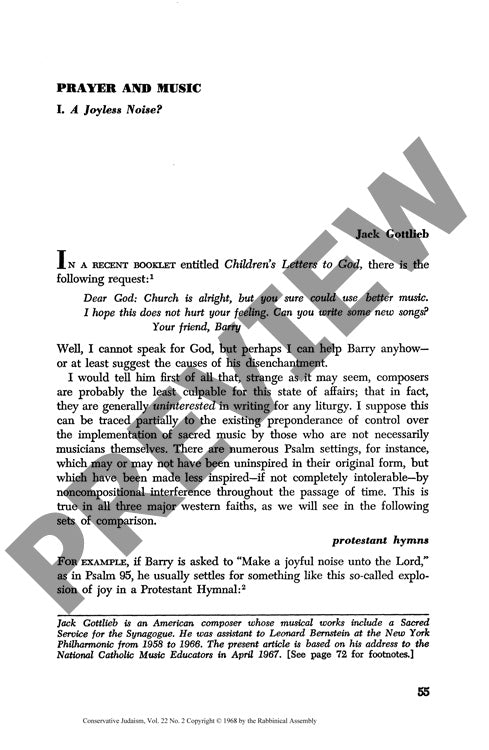Prayer and Music a Joyless Noise
Couldn't load pickup availability
Modern liturgical music has lost its way, sacrificing artistic sophistication for a misguided pursuit of solemnity. Across Protestant, Catholic, and Jewish traditions, well-intentioned but musically naive editorial changes have systematically stripped sacred music of its vitality and emotional authenticity. Through comparative musical analysis of hymnal settings and their historical sources, this research reveals how editorial interference by non-composers has degraded musical quality through inappropriate text-melody pairings, oversimplified harmonizations, and rhythmic flattening. Analysis of psalm settings, original compositions, and textual-musical relationships demonstrates how Common Metre adaptations force incompatible texts onto unsuitable melodies, while modern translations distort original chant settings. Contemporary liturgical music has adopted a false piety that contradicts the biblical call for joyful worship with diverse instrumentation. The ongoing transition from Latin and Hebrew to vernacular languages threatens further musical homogenization. To address these challenges, the establishment of an interfaith professional school for liturgical music education is proposed, emphasizing comparative study of religious traditions, musicological research, and contemporary compositional techniques grounded in historical precedent. This institutional approach would restore artistic integrity while respecting authentic traditions, ultimately transforming "joyless noise" into meaningful sacred expression.

More Information
-
Physical Description
-
Publication Information
Published 1968
ISBN
-
Publication Credits
Jack Gottlieb

